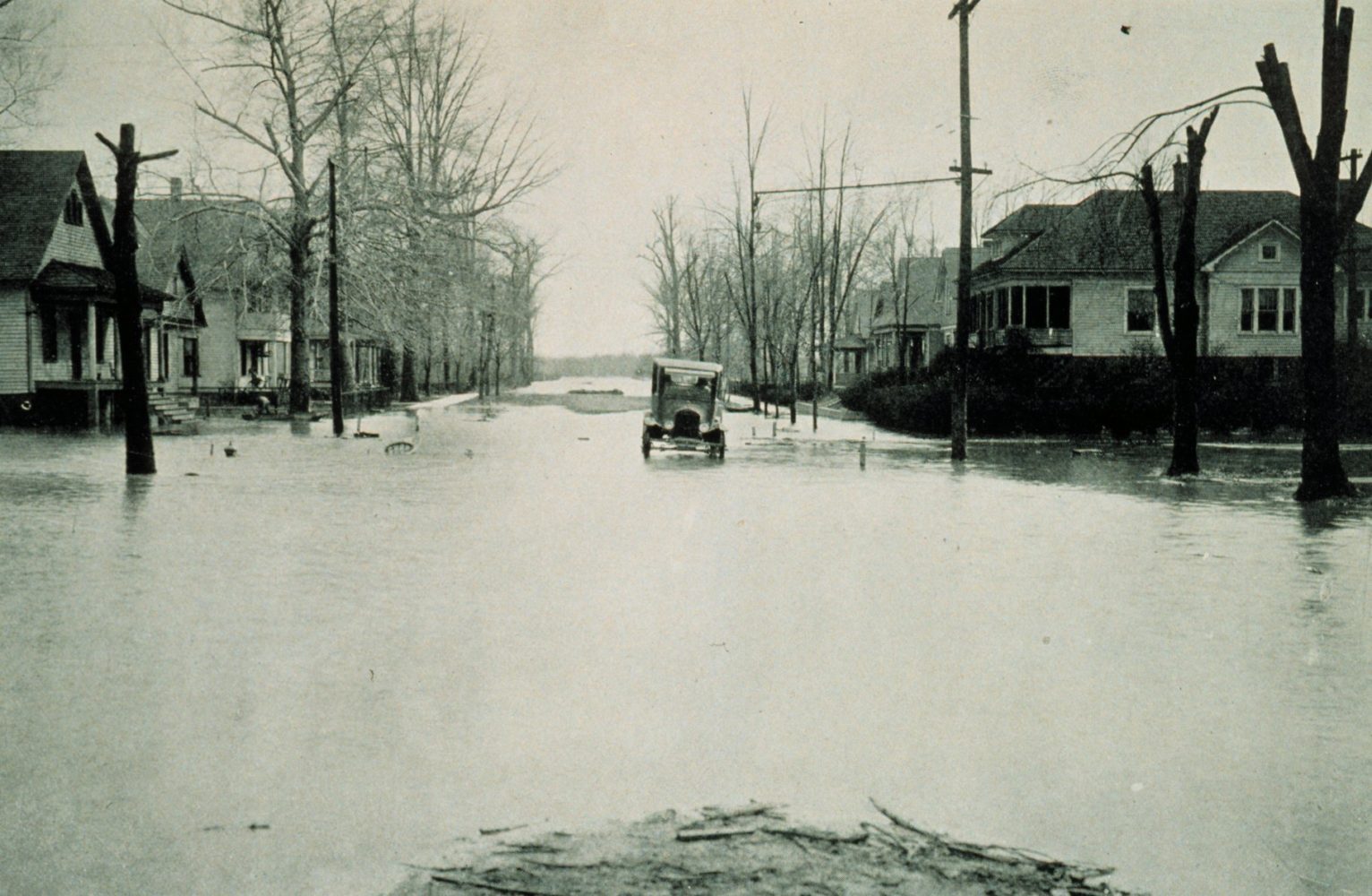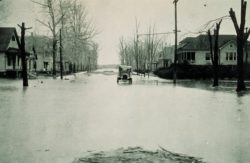Poetry by Martha Serpas
Chosen by outgoing Poet Laureate Jack Bedell
Published: August 30, 2019
Last Updated: December 1, 2019

Photo by Steve Nicklas
The Mississippi River Flood of 1927 at Mounds, Illinois.
—Jack Bedell
The Landscape is the Language
The swamp has a single
Discordant baseline
Insistent and full-throated
Blowing through dry palm fronds
And the long em-dash of soaring pelicans
Over elliptical knees, mossy commas
In an optional series
The cheniere’s thesis
Rising above the marsh
The naked ghost trees
The saltwater interrupts
Cypress punctuates every essential
And nonessential thought
Humidity quizzes the swamp
Hangs around my ears like language lab
Headphones, till there’s only
A glossary, a run-on, my mother tongue
When I speak from the heart
I step out on flotante. I shift my weight
With a pocket comb, I pull
The dead grass from the marsh
The storm decreates the water
And revises the dangling roseaus
Local Gods
I have always been a fan of local gods.
Whereas if the omnipresent God is ever present,
then the Cajun god is in one bar,
sitting on one stool, nursing the same
Jack and water, ready to talk—who’s ya daddy
che’? While Cajun goddess stirs a roux,
round and round, like a wheel of fortune
spun every time to a dark-roast fan.
Whenever I get down to Golden Meadow,
I pull over at the town hall shrine
for a moment with Our Lady
of Right Here Right Now
as she opens her arms to the serpent
as it opens its mouth to cry.
Oleander Avenue, 1927
The drowned girl is laid on a flatbed
classmates ring her like stage lights
wide-eyed, her monolog more
the wind driving time forward
then like backwash they recede
more tidal flat than transgressive dune
The truck pulls out onto
Oleander Avenue, heads northwest
toward the parish seat
where word has already arrived.
Parents wait in a shell lot,
slippers and boots crunching over
hand-rolled cigarettes. The sun
failing, one mother will
outlive a daughter, another will be spared
losing a child half her age.
All of them will look at the girl,
remember the one they nursed
and think again what they know they knew then,
she wants too much.
Martha Serpas has published three collections of poetry: Côte Blanche, The Dirty Side of the Storm, and The Diener. A fourth, Double Effect, is due in fall 2020 from LSU Press. She co-produced Veins in the Gulf, a documentary about land loss in Louisiana. She teaches at the University of Houston and serves as a hospital trauma chaplain.
